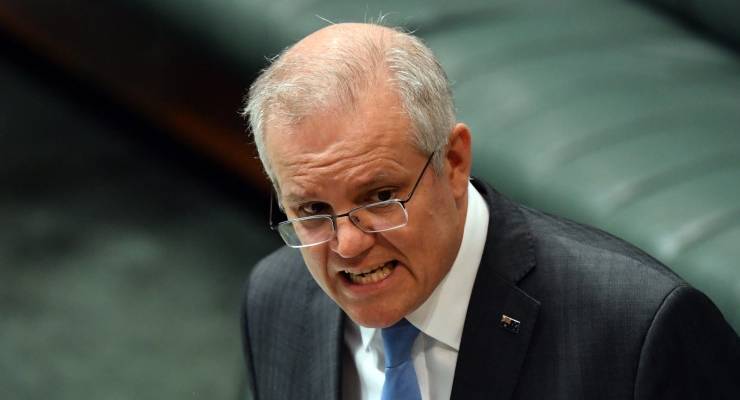
It’s hard not to see the Morrison government’s net zero pivot as an extraordinarily cynical bit of last-ditch face-saving. The prime minister’s big announcement, due right before his departure for climate talks in Glasgow he’d previously considered ditching, has already been welcomed by his British counterpart Boris Johnson as “heroic”.
That’s the response Morrison was hoping to get from key allies who have been far more ambitious on climate than him. Fronting up to Glasgow without at least a net zero target would’ve made Australia even more of an international laughing stock on climate. Only a no-show from Morrison could be worse.
But saving face with Johnson and US President Joe Biden is only part of it. On climate, and plenty more, the Morrison government is comfortable acting like a bumbling oaf on the world stage. What’s really driving Morrison is the looming election, and the determination to get climate policy “right” at the optimum time.
Getting policy “right” here doesn’t mean the best plan to actually reduce emissions. For the Morrison government, always light on policy, everything must be dealt with as a political problem. And on climate, the politics have shifted, at least when it comes to the largely symbolic target of net zero. Most voters support it. Most regional voters support it. Most Nationals voters support it. Big business supports it. This is why the government had to move, and the Nationals had to fall into line, even as people like Matt Canavan (in public) and Barnaby Joyce (in private, at least now) opposed a net zero target.
That move comes with a tacit acknowledgement that the next election will see a very different fight on climate from the one we had in 2019. Then, the spotlight was all on Labor, treated too often as a government-in-waiting. Forensic scrutiny was placed on the cost of their climate plan, rather than the cost of inaction under the Coalition. The perception Bill Shorten (and somehow Bob Brown) would destroy the coal industry, egged on by Morrison, helped drive massive swings against Labor in regional Queensland.
This time, fears about Labor’s agenda won’t be front and centre of the campaign. Anthony Albanese’s done everything to make sure of that, offering up a platform so small target nobody can actually see it. Notably, Labor still won’t adopt a more ambitious medium-term emissions target, hinting instead they might wait and see till after Glasgow.
Then there’s the once in a century pandemic which has dominated Morrison’s term, and which will weigh far more heavily on voters’ minds than net zero. Morrison has already started to lay the groundwork for a “freedom election,” hoping a hot-vaxxed summer of family reunions and open borders leads a relaxed and comfortable electorate to memory-hole the government’s failures on the vaccine rollout. It’s a strategy that puts NSW, where the Liberals believe they can gain seats, at the heart of their re-election plan. In Queensland, which secured the 2019 miracle, the government is already at its high point and can only lose seats.
Tack on the Coalition’s own internal wobbliness on net zero — their candidate for the Central Queensland seat of Flynn is promising to campaign against it — coupled with Morrison’s handling of the bushfire crisis, and the government have good reason to want to take the sting out of climate.
That’s what the net zero deal is really about — a quick resolution before Glasgow that smooths things over internationally, and gives voters the perception the government is acting. The desire to put daylight between Glasgow and the election means a December poll is now even more unlikely. Morrison wants voters to see the symbolic win (net zero) without thinking too hard about the fine print, or his own hypocritical about-face on things like electric vehicles (remember the War on the Weekend?).
And when he does call an election — the decision about when to do so being one of his biggest strategic advantages — expect Morrison to spin his last term as a victory over both the climate wars and the virus.
Will he get away with it? On climate, at least, an opposition haunted by the ghosts of scare campaigns past could well let him.








Crikey is committed to hosting lively discussions. Help us keep the conversation useful, interesting and welcoming. We aim to publish comments quickly in the interest of promoting robust conversation, but we’re a small team and we deploy filters to protect against legal risk. Occasionally your comment may be held up while we review, but we’re working as fast as we can to keep the conversation rolling.
The Crikey comment section is members-only content. Please subscribe to leave a comment.
The Crikey comment section is members-only content. Please login to leave a comment.